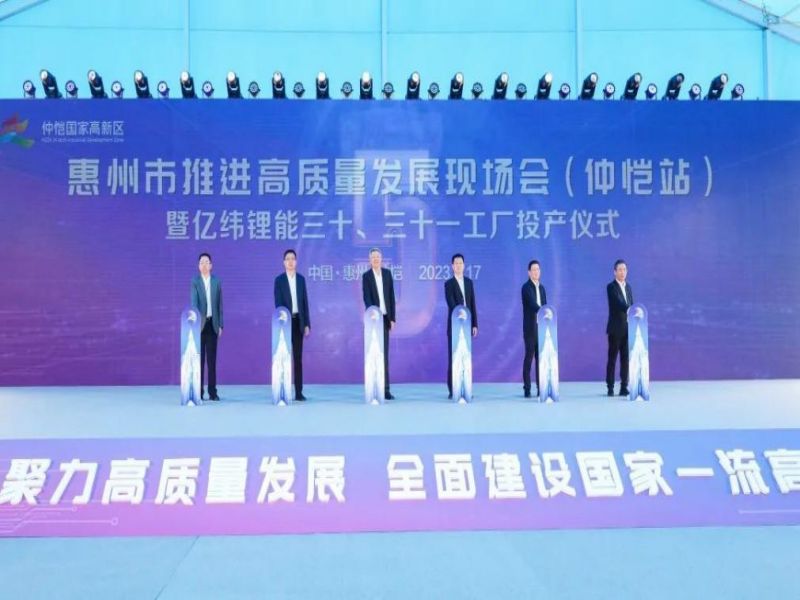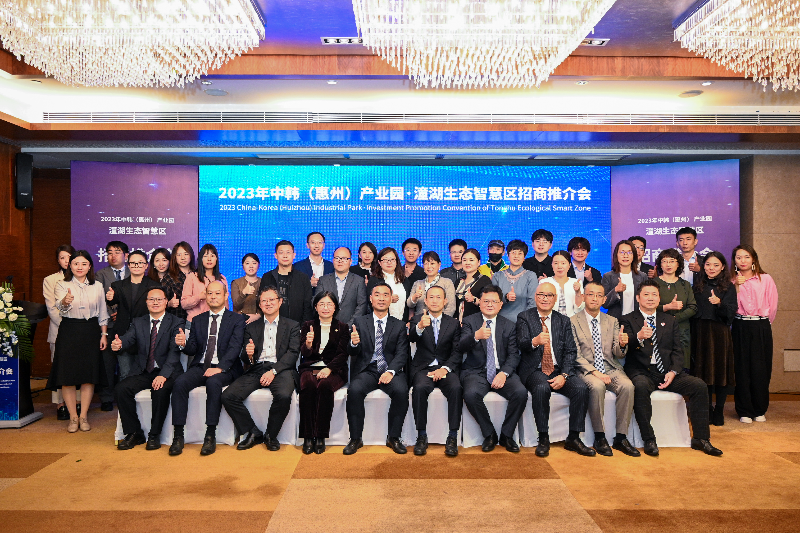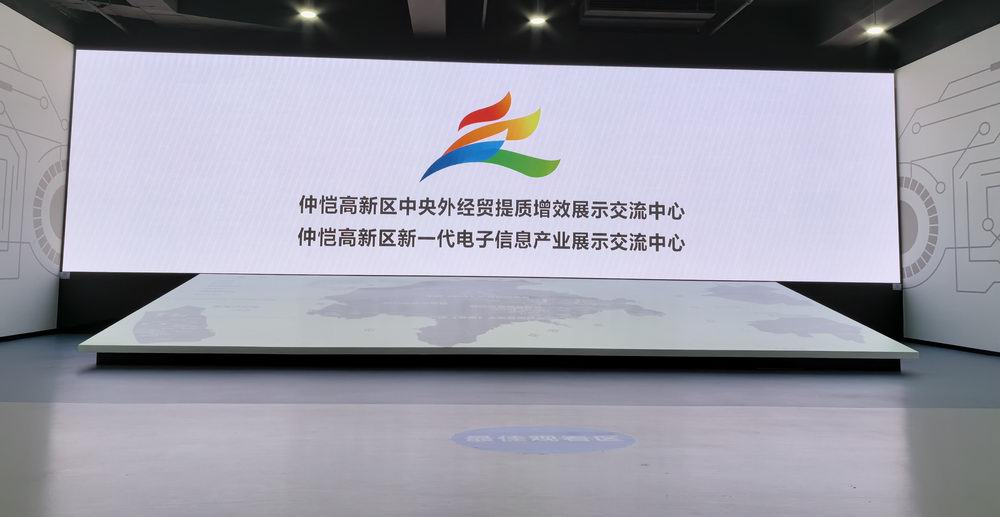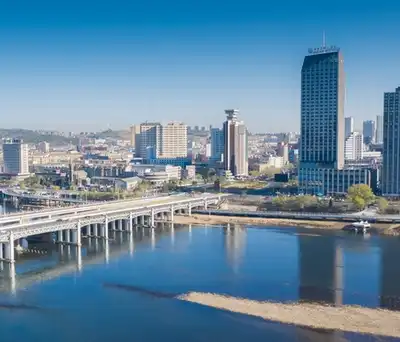How Smart Cities Propel Regional Economic Expansion

Smart cities are transforming urban life by leveraging technology to enhance efficiency and sustainability. They are pivotal in driving regional economic growth, as urban areas contribute significantly to global economic activity. Smart cities reduce emissions and stimulate economies. The Smart City Construction Pioneer Zone, Regional Economic Growth Pole, exemplifies this potential by supporting businesses and fostering innovation. Such cities improve public health and well-being, offering better air quality and waste management. Investing in smart city solutions ensures healthier communities and robust economic expansion.
Understanding Smart Cities
Definition and Key Features
Technology Integration
Smart cities use technology to make urban life better. They rely on the Internet of Things (IoT) to connect devices and gather data. This data helps cities become more efficient. Sensors track everything from traffic to air quality. These tools allow cities to respond quickly to issues. For example, real-time data can improve emergency responses. People feel safer when help arrives fast.
Urban Efficiency
Efficiency is a big deal in smart cities. Technology helps reduce waste and save energy. Cities monitor resources like water and electricity. This monitoring prevents overuse and cuts costs. Efficient systems also improve public services. Public transport becomes faster and more reliable. Cleaner streets and better waste management boost community pride.
Importance in Modern Urban Planning
Addressing Urban Challenges
Urban areas face many challenges. Smart cities tackle these head-on. They reduce greenhouse gas emissions by optimizing energy use. Cities like Singapore lead the way. They use apps to improve public transport. Fewer cars on the road mean less pollution. Smart cities also focus on renewable energy. This shift helps combat climate change.
Enhancing Quality of Life
Quality of life improves in smart cities. Better air quality means healthier residents. Advanced sensors monitor pollution levels. Officials use this data to create action plans. Cleaner air leads to more outdoor activities. Smart healthcare systems provide quick access to medical services. Residents enjoy peace of mind knowing help is available.
In places like Huizhou Zhongkai High-tech Zone, technology supports local businesses. The electronic information cloud platform boosts growth and innovation. Enterprises thrive with these tools. Communities benefit from economic expansion. Investing in smart city solutions promises a brighter future for everyone.
Smart City Construction Pioneer Zone,Regional Economic Growth Pole

Deployment of Technology
Sensors and Networks
Smart cities thrive on technology. Sensors and networks form the backbone of these urban areas. Imagine a city where every streetlight, traffic signal, and public bench can communicate. These devices gather data around the clock. Cities use this information to make decisions that improve daily life. For instance, sensors can detect traffic congestion. Traffic signals then adjust to ease the flow. This technology reduces commute times and lowers emissions.
Data Analysis
Data analysis plays a crucial role in smart cities. The collected data needs careful examination. Analysts look for patterns and trends. These insights help city planners make informed choices. For example, data might show a spike in energy use during certain hours. Planners can then implement measures to reduce consumption. This approach not only saves money but also conserves resources.
Urban Innovation and Entrepreneurship
Fostering Startups
Smart cities create fertile ground for startups. New businesses find support in these environments. The infrastructure encourages innovation. Entrepreneurs have access to cutting-edge technology. This access allows them to develop unique solutions. Startups often focus on sustainability and efficiency. These goals align with the city's objectives.
Supporting Local Businesses
Local businesses benefit from smart city initiatives. The Smart City Construction Pioneer Zone, Regional Economic Growth Pole, offers a supportive ecosystem. Businesses gain access to advanced tools and platforms. The electronic information cloud platform in Huizhou Zhongkai High-tech Zone stands out. This platform provides resources for growth and development. Companies can streamline operations and enhance productivity.
Impact on the Labor Market
Job Creation
The rise of smart cities leads to job creation. New technologies require skilled workers. Opportunities abound in various sectors. From tech support to urban planning, jobs emerge across the board. The demand for talent attracts professionals to the area. This influx boosts the local economy.
Skill Development
Skill development becomes a priority in smart cities. Workers need training to keep up with technological advancements. Programs offer courses in data analysis, network management, and more. These skills ensure that the workforce remains competitive. Continuous learning fosters a culture of innovation.
Promoting Sustainable Environments

Environmental Benefits
Reducing Carbon Footprint
Smart cities are all about cutting down on carbon emissions. Cities use less energy by tapping into renewable sources like solar and wind power. This shift helps reduce greenhouse gases, especially in transportation and electricity production. Imagine a city where electric buses replace diesel ones. Cleaner air means healthier lungs for everyone. Smart cities also encourage walking and biking. Fewer cars on the road lead to less pollution.
Efficient Resource Management
Efficient resource management is a big win for smart cities. Governments invest in sensors and data analytics to keep track of resources. Water and electricity get monitored closely. This monitoring prevents waste and saves money. Smart cities use cloud-based apps to manage resources better. These tools help cities make quick decisions. Efficient systems mean happier residents who enjoy reliable services.
Optimizing Public Service Delivery
Smart Transportation
Smart transportation makes getting around a breeze. Imagine a city where traffic jams are a thing of the past. Sensors and data analysis work together to keep traffic flowing smoothly. Traffic signals adjust based on real-time data. Commuters spend less time stuck in traffic. Public transport becomes more reliable and efficient. People can plan their journeys without stress. Smart transportation reduces travel time and lowers emissions.
Improved Healthcare Services
Healthcare services get a boost in smart cities. Advanced sensors monitor pollution levels, improving air quality. Better air means fewer health issues for residents. Quick emergency response systems save lives. Imagine an ambulance reaching you faster because of smart technology. Smart cities offer easy access to healthcare services. Residents feel secure knowing help is just a call away. Healthier communities thrive in smart environments.
Case Studies and Examples
Huizhou Zhongkai High-tech Zone
Technological Advancements
The Huizhou Zhongkai High-tech Zone stands as a beacon of technological progress. This zone integrates smart city technologies to enhance urban living. Sensors and networks form the backbone of this transformation. These tools gather data on traffic, air quality, and energy use. City planners use this data to make informed decisions. The goal is to improve efficiency and sustainability. Smart streetlights adjust brightness based on real-time conditions. This feature saves energy and reduces costs. Public transport systems benefit from real-time updates. Commuters enjoy shorter travel times and less congestion.
Economic Impact
Economic growth flourishes in the Huizhou Zhongkai High-tech Zone. The smart city initiatives attract businesses and investors. Companies find a supportive environment for innovation. The zone fosters startups with access to cutting-edge technology. Entrepreneurs develop solutions that align with the city's goals. Local businesses thrive with the help of advanced tools. The electronic information cloud platform plays a crucial role. This platform boosts growth and productivity for enterprises. Economic expansion leads to job creation and skill development. Residents enjoy a higher quality of life with increased opportunities.
National Foreign Trade Transformation and Upgrading Base
Electronic Information Cloud Platform
The Electronic Information Cloud Platform serves as a vital resource. This platform supports businesses in the National Foreign Trade Transformation and Upgrading Base. Companies streamline operations with cloud-based solutions. The platform offers tools for data analysis and resource management. Businesses gain insights into market trends and consumer behavior. These insights drive strategic decision-making and innovation. Enterprises enhance productivity and competitiveness in the global market. The platform encourages collaboration among businesses. Shared resources and knowledge lead to collective growth.
Regional Benefits
Regional benefits abound from the National Foreign Trade Transformation and Upgrading Base. The base attracts foreign investment and trade opportunities. Local economies experience growth and diversification. Businesses expand their reach to international markets. The region becomes a hub for innovation and entrepreneurship. Skilled workers find ample job opportunities in various sectors. The focus on technology and sustainability drives long-term economic progress. Communities enjoy improved infrastructure and public services. The base contributes to a vibrant and resilient regional economy.
Smart cities are reshaping urban life with cutting-edge technology. These cities boost economic growth and improve daily living. The Huizhou Zhongkai High-tech Zone and the Electronic Information Cloud Platform support businesses and innovation. Communities benefit from healthier environments and efficient services. Future smart city development should focus on sustainability and technological advancements. Embracing these changes promises a brighter future for everyone.
See Also
Maximizing Growth Potential in High-tech Zones
Huizhou's Innovation Hub: Fueling Industry Expansion
Investing Wisely in Huizhou's Lucrative Industry Sector
Driving Economic Prosperity: The Huizhou Zhongkai Way
Elevating Industrial Development: Zhongkai High-tech Zone's Success Story
Zhongkai High tech Zone National foreign trade transformation and Upgradi Base(Electronic Information)Cloud Platform.
Address: Zhongkai High-tech Zone,Huizhou City ,Guangdong,China
E-mail: huizhoueii@163.com 13510001271@163.com
Tel: +86-0752-3279220 Mobile: +86-13510001271


